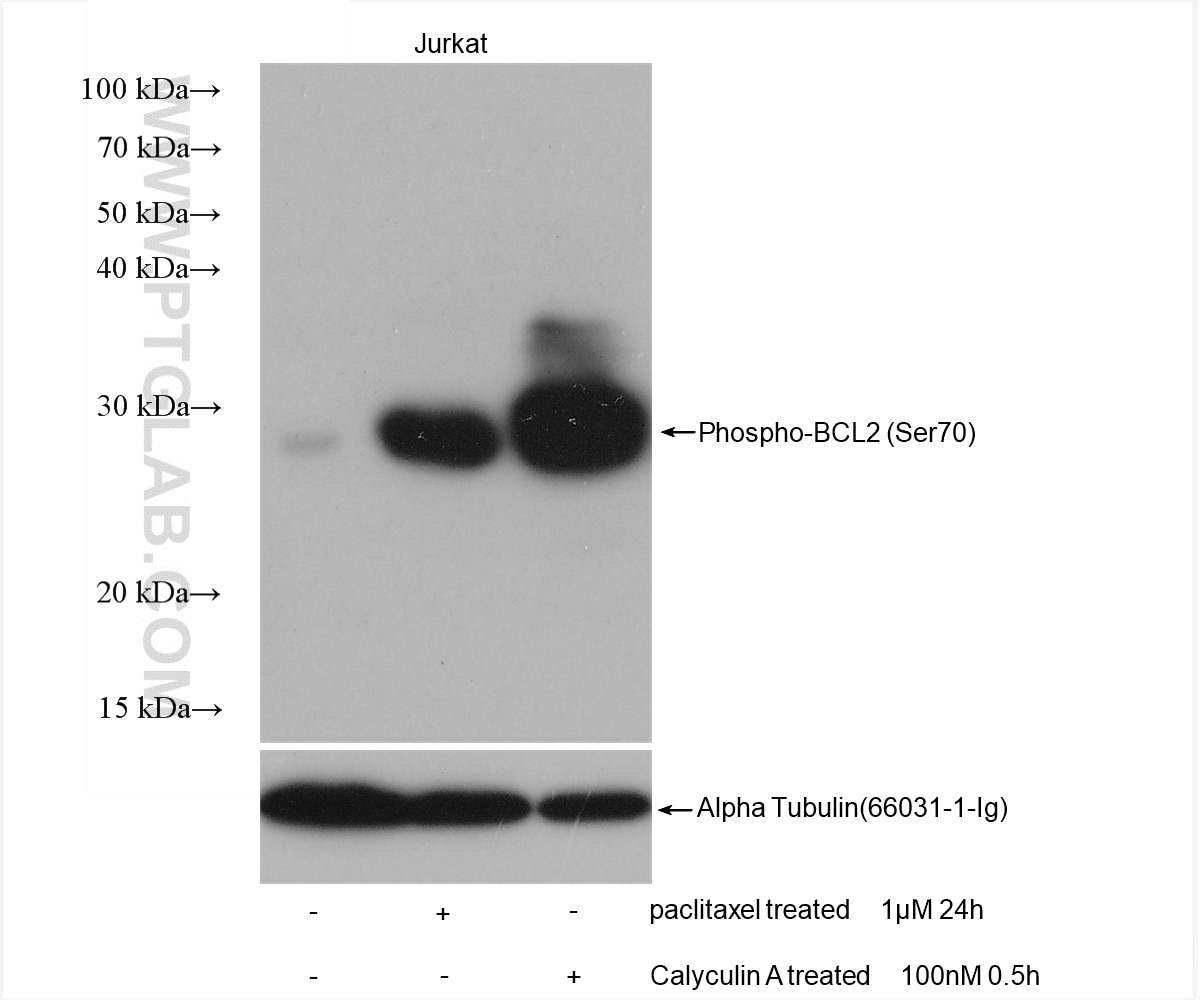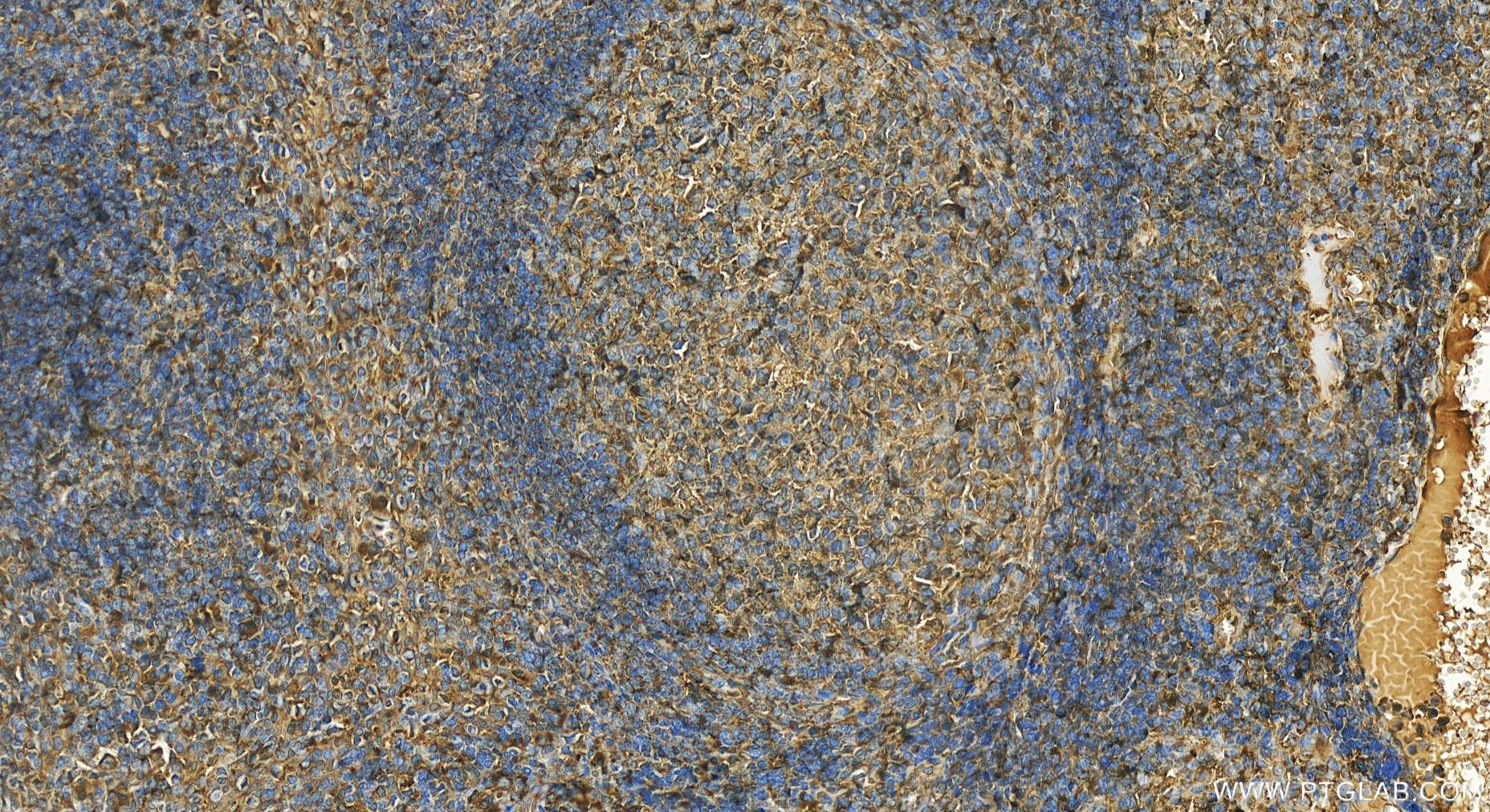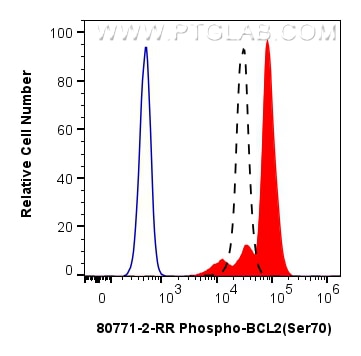Tested Applications
| Positive WB detected in | Jurkat cells, paclitaxel treated Jurkat cells, Calyculin A treated Jurkat cells |
| Positive IHC detected in | human tonsillitis tissue Note: suggested antigen retrieval with TE buffer pH 9.0; (*) Alternatively, antigen retrieval may be performed with citrate buffer pH 6.0 |
| Positive FC (Intra) detected in | Staurosporine treated Jurkat cells |
Recommended dilution
| Application | Dilution |
|---|---|
| Western Blot (WB) | WB : 1:2000-1:10000 |
| Immunohistochemistry (IHC) | IHC : 1:50-1:500 |
| Flow Cytometry (FC) (INTRA) | FC (INTRA) : 0.06 ug per 10^6 cells in a 100 µl suspension |
| It is recommended that this reagent should be titrated in each testing system to obtain optimal results. | |
| Sample-dependent, Check data in validation data gallery. | |
Published Applications
| WB | See 1 publications below |
Product Information
80771-2-RR targets Phospho-BCL2 (Ser70) in WB, IHC, FC (Intra), ELISA applications and shows reactivity with human samples.
| Tested Reactivity | human |
| Cited Reactivity | human |
| Host / Isotype | Rabbit / IgG |
| Class | Recombinant |
| Type | Antibody |
| Immunogen |
Peptide Predict reactive species |
| Full Name | B-cell CLL/lymphoma 2 |
| Calculated Molecular Weight | 26 kDa |
| Observed Molecular Weight | 26 kDa |
| GenBank Accession Number | BC027258 |
| Gene Symbol | BCL2 |
| Gene ID (NCBI) | 596 |
| RRID | AB_3670487 |
| Conjugate | Unconjugated |
| Form | Liquid |
| Purification Method | Protein A purification |
| UNIPROT ID | P10415 |
| Storage Buffer | PBS with 0.02% sodium azide and 50% glycerol, pH 7.3. |
| Storage Conditions | Store at -20°C. Stable for one year after shipment. Aliquoting is unnecessary for -20oC storage. 20ul sizes contain 0.1% BSA. |
Background Information
BCL2 belongs to the Bcl-2 family. The anti-apoptotic protein BCL2 can bind to the pro-apoptotic protein BAX or BAK1 to form heterodimers that modulate apoptosis. BCL2 phosphorylation at Ser70 enhances binding to BAX and BAD and is essential for its anti-apoptotic activity. Conversely, BCL2 also regulates autophagy via interaction with BECN1/Beclin 1; moreover, BCL2 phosphorylation including at Ser70 leads to its dissociation from BECN1 and induction of autophagy. These findings suggest that BCL2 regulates the balance between apoptosis and autophagy. (PMID: 29433359)
Protocols
| Product Specific Protocols | |
|---|---|
| IHC protocol for Phospho-BCL2 (Ser70) antibody 80771-2-RR | Download protocol |
| WB protocol for Phospho-BCL2 (Ser70) antibody 80771-2-RR | Download protocol |
| Standard Protocols | |
|---|---|
| Click here to view our Standard Protocols |








